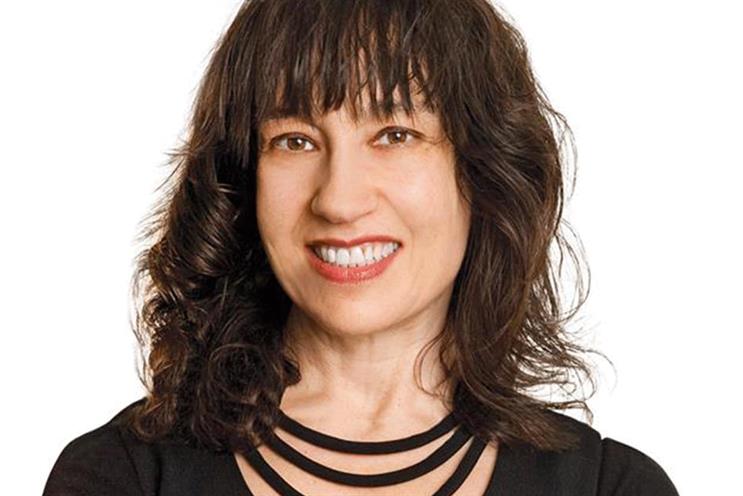Edwina Dunn, famous for setting up the mother of big data DunnHunnby, has moved on from her previous life in data analytics and is tackling a problem dear to all our hearts, how to inspire young women.
Her new book, is designed to inspire the next generation of girls. It takes the idea that you need to see it to be it and delivers at scale.
The Female Lead is a non-profit organisation dedicated to making women’s stories more visible and offering alternative role models to those ever-present in popular culture. The project highlights the breadth of female achievement in order to offer inspiration for future generations.
The Female Lead creates a variety of spaces to present these stories including a book of 60 amazing women from around the world published in February, together with an online and social media presence, and an outreach programme for girls in schools, celebrating female role models who shape the world.
Edwina was interviewed at Advertising Week Europe by Natasha Pearlman editor of Grazia. Dunn talked about the gender divide that she’d seen in girls’ role models. She said girls have a smaller range of people they look up to. They will name their mother or sister, perhaps a celebrity (Kardashian, inevitably). Whereas boys seem to have a wider spectrum – footballers and business men included.
MediaCom's longitude study, RWI’s Connected Kids, which has been surveying 1,200 8- to 19-year-olds in the UK for over 15 years, shows that when specifically asked about people in the public eye as role models, girls do come up with business women, even if they might be celebrities first as well as sports heroes just as boys do.
When specifically asked about people in the public eye as role models, girls do come up with business women, even if they might be celebrities first as well as sports heroes just as boys do.
When asked who in the public eye they might see as role models, the boys’ list includes: David Beckham; Alan Sugar; Bill Gates; Wayne Rooney; Richard Attenborough and Richard Branson. Girls name: Emma Watson; Kylie Jenner; Beyonce; Scarlett Moffat; Little Mix and Jessica Ennis-Hill.
Furthermore, girls’ career aspirations are far broader than when our survey started, when hoped for careers were dominated by movie or pop star hopes. So junior school girls now say that when they grow up they want to be a vet, teacher, policewoman, doctor, dentist and yes dancer. Senior girls say teacher, scientist, doctor, vet or lawyer. Boys say Engineer, footballer, doctor, IT and gaming and scientist.
The Female Lead book wants to encourage even more young women to embrace a variety of career aspirations, including business.
Meanwhile at another highlight of Advertising Week, when Matt Schnecker interviewed Jamie Oliver, the TV chef struggled to answer the question about who he considered a role model. Eventually he arrived at Mayor Bloomberg (who was obviously a businessman who turned to politics – does this indicate Oliver’s future plans? Might we get the Naked Mayor?)
He pointed out that Bloomberg is criticised by some for not achieving all of his goals. Oliver’s view is that Bloomberg cast a stone into the pool and it is the ripples that are his achievement. Even if all of his objectives haven’t necessarily been met.
The Female Lead is another stone into the pool of the status quo, and here’s hoping it creates ripples that deliver lasting change for young women.
Sue Unerman is the chief transformation officer at MediaCom.


